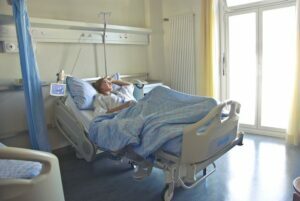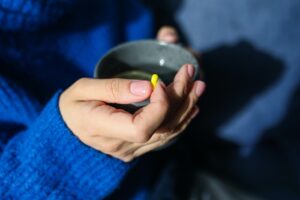Drug & Alcohol Rehab in Bedfordshire
Quick Links for help with addiction in Bedfordshire
- Concerning drug and alcohol use: Signs of addiction in Bedfordshire
- What you’ll gain from drug and alcohol rehab in Bedfordshire
- Sustainability at alcohol and drug rehab in Bedfordshire & near Bedfordshire
- Intervention for drug and alcohol rehab in Bedfordshire
- The cost of drug and alcohol rehab in Bedfordshire & near Bedfordshire
- Duration of drug and alcohol rehab in Bedfordshire
- NHS vs private alcohol and drug rehab in Bedfordshire
- Inpatient vs outpatient drug and alcohol rehab in Bedfordshire
- Therapy at drug and alcohol rehab in Bedfordshire & near Bedfordshire
- Dual diagnosis at alcohol and drug rehab in Bedfordshire
A 2021 report found that Bedfordshire has experienced one of the UK’s largest increases in drug-related crime in recent years.
Whereas many other counties recorded decreases in this statistic, the county of Bedfordshire recorded an increase of over 400 cases since 2018 [1].
The rate of alcohol-related deaths in the East of England has been consistently rising over the past ten years.
Per 100,000 people, the region recorded 9.2 deaths in 2020 compared to 7.7 in 2010. [2]
| Drug and Alcohol Addiction in Bedfordshire | ||
|---|---|---|
| Ethnicity | Bedford Borough (%) | England (%) |
| White | 84.4 | 87.3 |
| Black/Black British | 2.0 | 3.0 |
| Asian/Asian British | 5.0 | 3.9 |
| Mixed | 3.4 | 2.6 |
| Other | 0.9 | 1.0 |
| Missing/Unknown | 4.3 | 2.2 |
If your life has been affected by drug abuse or alcohol use, OK Rehab’s contacts in Bedfordshire can help.
Recovery is a long, challenging process, but it is guaranteed to result in more happiness than alcohol or drug addiction ever could.
Substances bring short-lived spikes of happiness, but sobriety brings true contentment.
To achieve this contentment, you must first admit that you need help. Do not underestimate your bravery in doing this; it takes tremendous courage to confess that you are dependent on drugs or alcohol.
When you reveal your addiction problems to others, you will come to realise that you are not alone in your fight.
The county of Bedfordshire is packed with rehab centres that help struggling individuals find their feet daily.
Don’t give your addiction time to deteriorate – reach out for help as soon as possible.
For more help locating a drug and alcohol rehab in Bedfordshire, call our 24-hour helpline: 0800 326 5559
How do I know if I am addicted?

Above: A man with his head in his hands on a Bedfordshire park bench before seeking drug and alcohol rehab
Knowing how to spot an alcohol or drug addiction is difficult, but identifying when alcohol use or substance misuse has gotten out of hand can help treat problems before they become more serious.
For a quick indication as to whether you are suffering from an addiction, it is easy to answer the four questions of the CAGE questionnaire. These are:
- Have you ever felt the need to cut down on your substance use?
- Have you ever felt annoyed at someone commenting on your substance use?
- Have you ever felt guilty about your substance use?
- Finally, have you ever used a substance as an ‘eye-opener’ (i.e., to wake up in the morning)?
Answering ‘yes’ to any of these questions might signify that your relationship with a substance is unhealthy and in need of treatment.
There are several other tests that you or a drug and alcohol specialist service may use to determine the existence and severity of addiction, including the Alcohol Use Disorders Identification Test (AUDIT), the Diagnostic and Statistical Manual of Mental Disorders criteria (DSM-5) and the American Society of Addiction Medicines criteria (ASAM).
These assessments will typically ask a series of questions involving your addiction history, rate of use, previous experiences with relapse and your home recovery environment.
For more help locating a drug and alcohol rehab in Bedfordshire, call our 24-hour helpline: 0800 326 5559
What will I gain from going to drug and alcohol rehab in Bedfordshire?

When you emerge from residential drug or alcohol rehab in Bedfordshire or near Bedfordshire, you may notice that your mental health is better than ever.
The programme of therapy you complete does not just focus on alcohol or drug addiction but also on your mental well-being in general, and you will feel the benefit of dedicating many hours to it.
Your physical health is also likely to improve, thanks to the healthy lifestyle promoted at drug or alcohol rehab in Bedfordshire.
You will be encouraged to keep up this lifestyle by exercising regularly and eating healthily, which is directly linked to positive mental health.
Rehabilitation often gives patients the courage to take back control of their lives.
Addiction is so powerful that it can cause your life to spiral out of control, but rehab in Bedfordshire encourages you to rebuild a life that reflects sobriety.
After a month from home, you will feel more confident in avoiding people and places threatening your recovery.
Another benefit of rehabilitation is that it fosters close relationships. You will be more honest with your friends and family, which may bring you closer together after a time of great secrecy.
Your relationships will become stronger if you have family therapy at rehab for addiction in Bedfordshire, as this allows each family member to understand one another better.
People are often more financially stable after rehab in Bedfordshire. This is because alcohol and drug addiction often results in overspending; therefore, once the addiction has been treated, you can save money by not purchasing substances.
When you are constantly under the influence, your decision-making skills are significantly worse, so living a sober life means that you will make wiser financial decisions.
Finally, drug and alcohol rehabilitation in Bedfordshire provides you with the gift of understanding.
You will learn why you struggle with drug or alcohol abuse, how different traumas have affected you, and what you can do to undo the damage of addiction.
A better understanding of yourself ultimately leads to more self-confidence and less shame.
For more help locating a drug and alcohol rehab in Bedfordshire, call our 24-hour helpline: 0800 326 5559
Are drug and alcohol rehabs in Bedfordshire sustainable?

Recovering in residential rehab in Bedfordshire is the most sustainable way to recover.
Drug and alcohol rehabs in Bedfordshire promote abstinence, so there is no room for a cycle of binging and seeking treatment.
Your personalised addiction treatment programme will be geared towards helping you get to the root of your alcohol or drug addiction through various types of therapy at your chosen rehab in Bedfordshire.
When you address the root of your drug or alcohol problem instead of the superficial symptoms, you are more likely to secure long-term recovery.
Unfortunately, drug and alcohol addiction cannot be fully cured – you will inevitably face temptation after completing your treatment.
However, rehab in Bedfordshire teaches you how to control your urges by employing healthy coping mechanisms instead of giving in to substances.
You must do this regularly, as recovery requires you to be on guard and prepared to deal with the temptation that will eventually arise.
For more help locating a drug and alcohol rehab in Bedfordshire, call our 24-hour helpline: 0800 326 5559
Steps Before Drug and Alcohol Rehab in Bedfordshire: Intervention

Denial is very typical for those who develop alcohol or drug addiction. [3]
Accepting the presence of a substance use problem can be very ego-bruising, and many who need help can therefore reject the fact that treatment is even needed at all.
When this happens, the family and friends of an individual can often step in and get the treatment process started by holding an intervention.
This event brings together the individual’s closest friends and families to tell the addiction sufferer that they have a drug or alcohol abuse problem.
While these events can be instrumental to getting the route to recovery going, they can be challenging to organise and execute.
For this reason, individuals may seek the services of a professional interventionist in Bedfordshire who can assist in several vital aspects of the process.
For more help locating a drug and alcohol rehab in Bedfordshire, call our 24-hour helpline: 0800 326 5559
Getting people together in Bedfordshire
Interventions are delicate events to arrange, needing to strike a perfect balance between being impactful and intimate simultaneously.
Enough people need to attend in order to show the individual the scale of their drug or alcohol problem, but only close family and friends should be there to develop an atmosphere of trust.
Not only can this be a complex formula to get right, but making sure the event is held at a place and time that works for everyone can also be a headache to arrange.
A professional interventionist, however, can step in and help in these areas.
They can advise who and who not to invite, as well as help contact attendees and find a mutually agreeable time and location to hold the event.
If the person in addiction is willing, you can then arrange alcohol and drug rehab in Bedfordshire or some other suitable treatment from the wide selection of professional treatment providers in Bedfordshire & near Bedfordshire.
For more help locating a drug and alcohol rehab in Bedfordshire, call our 24-hour helpline: 0800 326 5559
Remaining supportive with your loved one at rehab in Bedfordshire

Because of the prevalence of denial among those who develop addictions, interventions can be frustrating events to hold.
When individuals are told that they have an addiction, it is perfectly normal for them to reject the concerns being voiced to them, ignore the pleas of their family and friends, and even become aggressive towards the attendees.
This kind of response can derail an intervention, causing attendees to get annoyed and critical of the addicted individual.
This takes the event away from the central goal of the intervention, but a professional can help prevent this.
By being present at the intervention, an experienced addiction treatment practitioner can step in when things are becoming hostile and ensure that the event’s tone remains supportive and effective.
For more help locating a drug and alcohol rehab in Bedfordshire, call our 24-hour helpline: 0800 326 5559
Making the point about rehab in Bedfordshire

Interventions bring together an individual’s closest family and friends, but the familiarity between everyone present can limit the impact of what is said and what concerns are voiced.
Individuals listening to their family and friends can easily dismiss them, argue that they are overreacting, and blame problems on other things.
Issues can be avoided, and progress halted in this way. But a professional can prevent this.
Approaching Rehab in Bedfordshire – Why is it important to encourage rehab in Bedfordshire in the right way?
With a professional addiction treatment practitioner standing or sitting amongst their family and friends, an individual is more likely to take the event seriously.
Interventionists in Bedfordshire – Why do I need an interventionist to encourage going to rehab in Bedfordshire?
The presence of a professional interventionist can give the event a degree of validity, and the professional can communicate how vital the intervention is.
For more help locating a drug and alcohol rehab in Bedfordshire, call our 24-hour helpline: 0800 326 5559
Methods of Drug and Alcohol Rehab – The CRAFT Approach to Intervention

The conventional intervention format is a very popular way of helping an addicted individual, but it is by no means the only option available.
Alternatively, those who want to help an addicted friend or family member can decide to conduct a CRAFT intervention, a method of support which takes a slightly different approach to help someone move away from their substance abuse.
For more help locating a drug and alcohol rehab in Bedfordshire, call our 24-hour helpline: 0800 326 5559
What does CRAFT involve in Bedfordshire?
When the CRAFT approach to intervention is chosen, it involves the family and friends of an addicted individual coming together to establish a reward system relating to their behaviour.
More specifically, this means that the people who care about an individual work together to reward positive behaviour – such as engaging in addiction treatment – and punish harmful behaviour – such as continuing substance use.
The objective is to interfere with the reward system that the brain has constructed around substance use.
When individuals become addicted, they associate drinking or taking drugs with pleasure, so CRAFT’s goal is to reverse this association.
To achieve this, CRAFT depends on the unanimity and consistency of those involved.
Friends and family must keep up their rewards and punishments as only this way will individuals eventually realise the benefits of being sober.
For more help locating a drug and alcohol rehab in Bedfordshire, call our 24-hour helpline: 0800 326 5559
How much does drug & alcohol rehab cost in Bedfordshire?

The cost of drug and alcohol rehab in Bedfordshire & near Bedfordshire depends on the kind of treatment that an individual chooses. When choosing from the wide range of addiction treatment options across the county of Bedfordshire, considering the price is very important.
Private rehab clinics in Bedfordshire can cost around £14,000 for a 28-day addiction treatment programme, averaging around £495 daily.
Some rehabilitation facilities will charge much less than this – some as low as £1,000 a week – so it is essential to look at all available options.
For the rehab programmes that are a bit more luxurious – offering a range of additional rehab facilities in Bedfordshire and recovery services for comfort and relaxation – individuals should expect to pay £100,000 or more for a 28-day recovery programme.
If you are looking to find the cheapest option, we advise that you shop around as the price of rehab in Bedfordshire does vary from location to location.
To find out more about the options in Bedfordshire, don’t hesitate to contact our friendly team, who will be more than happy to help you.
For more help locating a drug and alcohol rehab in Bedfordshire, call our 24-hour helpline: 0800 326 5559
Does health insurance cover drug & alcohol rehab in Bedfordshire?

Paying for alcohol and drug rehab in the county of Bedfordshire can be an unexpected burden on your personal finances, and this can cause a lot of people to wonder if their health insurance can help in any way.
In order to determine whether your health insurance can help with rehab costs in Bedfordshire, you need to consult your policy and see if there are any relevant coverages.
For example, many companies offer mental health or addiction cover, both of which usually contribute to the fees of rehab and substance abuse recovery.
For more help locating a drug and alcohol rehab in Bedfordshire, call our 24-hour helpline: 0800 326 5559
Can the NHS cover the cost of my alcohol & drug addiction treatments in Bedfordshire?

In the UK, the NHS provides treatment without charging individuals.
Those requiring drug and alcohol rehab in Bedfordshire are also entitled to this care, but are then limited to the recovery services provided by the NHS or dedicated addiction charities.
If an individual wants a more comfort-focused, luxurious rehab experience, they will need to seek out private care and pay for it themselves.
Some of the most prominent NHS or free addiction treatment services in the county of Bedfordshire include:
1. Path 2 Recovery in Bedfordshire
Address: 21 The Crescent, Bedford, MK40 2RT
Telephone: 0333 332 4019
Website: https://changeyourtomorrow.co.uk/#areas/elft/pages/Home
2. Aquarius in Bedfordshire
Address: 23C Carlisle Rd, Bedford MK40 4HR
Telephone: 07467 336203
Website: https://aquarius.org.uk/
3. North Bedfordshire CAHMS in Bedfordshire
Address: 5-7 Rush Ct, Bedford MK40 3JT
Telephone: 01234 893300
Website: https://www.elft.nhs.uk/camhs/where-we-work/north-bedfordshire-camhs
4. Turning Point Bedfordshire
Address: 25A Shuttleworth Rd, Elm Farm Industrial Estate, Bedford MK41 0HS
Telephone: 01234 219817
Website: https://www.turning-point.co.uk/
For more information about what recovery services the NHS provides and how it can support individuals in funding their treatment, be sure to contact your GP or another medical professional.
Bedfordshire County Council can also be contacted for information about local services.
For more help locating a drug and alcohol rehab in Bedfordshire, call our 24-hour helpline: 0800 326 5559
How long does alcohol and drug rehab in Bedfordshire last?

When considering drug and alcohol rehab in Bedfordshire & near Bedfordshire, knowing how long the process takes to arrange time away from work and family commitments is essential.
In general, rehab takes around 28 days for an individual to complete. It begins with a seven-to-ten-day medical detox, tackling physical dependency, followed by a few weeks of therapy and addiction workshops.
However, several factors can impact whether an individual’s duration in treatment is longer or shorter than this estimate. These include:
- How severe their addiction is when they begin treatment
- What substance are they addicted to
- How long it takes the team in a Bedfordshire rehab clinic to find appropriate treatment
- What other physical health conditions they have
- What other mental health conditions they have
For more help locating a drug and alcohol rehab in Bedfordshire, call our 24-hour helpline: 0800 326 5559
NHS vs private addiction treatment in Bedfordshire & near Bedfordshire

Alcohol and drug rehab in Bedfordshire is expansive, and those requiring treatments have many options regarding how they want to pursue their goal of beating addiction and becoming sober.
But selecting the right treatment option is not as simple as it sounds. First, individuals must decide whether public, NHS-provided treatment is most appropriate for them or whether they should go for that provided by private rehab clinics.
Both have pros and cons, so assessing these before making a decision is essential.
For more help locating a drug and alcohol rehab in Bedfordshire, call our 24-hour helpline: 0800 326 5559
NHS addiction treatment options in Bedfordshire

The most obvious route for individuals to take is to select the drug and alcohol rehab treatments provided by the NHS.
The immediate benefit of this option is the affordability factor. With the NHS covering the majority, if not all, of the costs relating to treatment and recovery services, this option is by far the best value for money for the majority of people.
Additionally, NHS services are present in almost every county or town in the UK, including Bedfordshire.
Public rehab centres are dotted up and down the country, meaning that individuals do not have to travel far or relocate in order to receive support.
However, the breadth of the NHS across the UK also means that the quality of service in each individual facility is restricted.
As a public service, the NHS is required to spread its resources and staff as far as possible, meaning that each facility is required to make do with the bare minimum.
The consequence of this is that individuals may not receive personal treatment, instead being treated in a uniform way.
It also reduces each facility’s patient capacity, meaning people can be left on waiting lists until a space becomes available.
Before making a decision about where you would like to receive treatment in Bedfordshire, we recommend that you do your own research into the rehab services available.
For more help locating a drug and alcohol rehab in Bedfordshire, call our 24-hour helpline: 0800 326 5559
Private drug & alcohol rehab in Bedfordshire

Recovery is not limited to public-funded addiction programmes, however. Individuals also can see what private companies can offer, and there is usually a great variety to choose from.
One of the benefits of a private rehab clinic in Bedfordshire is the variety of are and large selection of treatment options available to you. Also, these programmes are often focused on providing a comfortable, even enjoyable rehab experience.
Rehabilitation facilities often provide the fundamental treatment methods alongside those designed to boost overall well-being and allow an individual to relax.
When you enter a private rehabilitation centre in Bedfordshire, you can expect to find wellness facilities like; spa treatments, fitness facilities, outdoor recreational spaces, and private accommodation.
The ability of these facilities to pay high wages also means that they are able to attract incredibly talented professionals within the field of addiction and rehab.
This ensures personalising and tailoring treatment for patients in Bedfordshire’s private rehab facilities.
However, with all of these facilities on offer, it is important to note that the admission price for a private addiction treatment programme is often very steep.
Private rehab clinics can charge up to and in excess of £100,000 for treatment, far beyond that of most people’s budgets.
Additionally, fitting in all of the recovery services and rehabilitation facilities means that private drug and alcohol rehab clinics need a lot of space to work with.
They cannot be in every town in the UK, often being located in remote, picturesque places. Those who want to enrol, therefore, will need to travel.
For more help locating a drug and alcohol rehab in Bedfordshire, call our 24-hour helpline: 0800 326 5559
Inpatient or outpatient treatment in Bedfordshire – Which is better?

Drug and alcohol rehab treatment in Bedfordshire is very flexible, being able to adjust to the needs and requirements of different individuals who want to tackle their addictions in a way that suits them.
Quite a significant variation among treatment options relates to where they take place.
Some involve individuals staying with a treatment facility (inpatient) while others allow them to remain living at home (outpatient), and there are benefits and drawbacks to both.
For more help locating a drug and alcohol rehab in Bedfordshire, call our 24-hour helpline: 0800 326 5559
Inpatient rehab treatment in Bedfordshire

When individuals opt for treatment at an inpatient rehabilitation clinic, they have chosen the safest option available. Under the constant supervision of medical professionals, they are constantly protected from the dangers of detox.
Detox can be tricky to get right, and individuals can suffer uncomfortable and even lethal withdrawal symptoms as their body adjusts to being sober.
Inpatient rehab ensures medications can be provided when necessary to ease patient distress.
In addition, the amount of time addiction specialists have with patients allows for more thorough treatment to be conducted.
A proper medical detox must be carried out with patience, and the following weeks of therapy and addiction workshops can focus on identifying the underlying triggers of addiction.
At one of our residential alcohol and drug rehab centres in Bedfordshire, you can go through therapy and addiction workshops in an environment which is suited and designed to support your recovery.
However, the supervision and support ensured by individuals residing within a facility also mean they do not have the freedom to do as they wish. They cannot go home or go out when they like.
For more help locating a drug and alcohol rehab in Bedfordshire, call our 24-hour helpline: 0800 326 5559
Outpatient addiction treatment services in Bedfordshire

What makes outpatient treatment so attractive to many people is the amount of freedom it allows people to exercise while they go through treatment.
With this style of rehab treatment, individuals meet with addiction specialists on a regular basis to gain advice and support regarding their substance use. In the meantime, they are able to live at home and do as they wish, living how they choose.
Not needing the same amount of time and resources, outpatient treatment programmes can also be much cheaper than the inpatient alternative, making them more affordable for people.
While outpatient treatment can be very effective, it is limited in how much support it can offer.
Without supervision or around-the-clock rehab support, these addiction treatment programmes cannot provide fully supervised detox services, nor can they equal the extent of therapy provided in inpatient facilities in Bedfordshire.
As a result, the scope of outpatient care is very limited, and only those with relatively recent conditions with manageable symptoms are able to benefit from it.
For more help locating a drug and alcohol rehab in Bedfordshire, call our 24-hour helpline: 0800 326 5559
Alcohol detox & rehab in Bedfordshire

Alcohol is regularly consumed in everyday life, but what many people don’t know is that its misuse can trigger one of the most dangerous forms of dependency.
The body can become used to the substance so much that it depends on it to function and survive.
When this happens, individuals are prevented from becoming sober by the withdrawal symptoms that strike when they try to stop their drinking.
These are the body’s natural response to a chemical imbalance, and alcohol withdrawal is particularly dangerous.
Alcohol withdrawal symptoms can include cardiac problems, insomnia, intense anxiety, and Delirium Tremens, potentially causing sudden death.
Several medications can be used to reduce harmful withdrawal symptoms. These include Librium, Acamprosate (Campral®), an antidepressant like nefazodone, desipramine, or imipramine, or the opioid antagonist Naltrexone.
Alcohol can have a variety of effects like difficulty walking, blurred vision, slurred speech, slowed reaction times and impaired memory. Excessive alcohol use also carries the risk of alcohol poisoning.
The long-term effects of alcohol use disorder can include Wernicke-Korsakoff Syndrome, alcoholic neuropathy, alcohol withdrawal syndrome, alcoholic cerebellar degeneration, alcoholic myopathy and fetal alcohol syndrome.
Alcohol also causes damage to your liver and it is reported that about 14% of alcoholics develop liver cirrhosis if they continue to drink heavily for over 8 years.
You should ideally begin your recovery now, as being an alcoholic is thought to drastically lower your life expectancy. For those who have been hospitalised, it is thought that the average age of death for an alcoholic is 47–53 years in men and 50–58 years in women.
For more help locating a drug and alcohol rehab in Bedfordshire, call our 24-hour helpline: 0800 326 5559
Why should I attend residential rehab in Bedfordshire & near Bedfordshire?

Aside from the excellent success rates tied to inpatient centres, there are many other reasons you should consider enrolling.
We work with rehab centres in beautiful locations around Bedfordshire. You could enjoy 28 days in the serene countryside, with an abundance of activities on offer.
All of our drug and alcohol rehab centres in Bedfordshire and around the country provide round-the-clock care, so you are never left to face your addiction battles alone.
Throughout the day and the night the team of addiction counsellors, qualified recovery nurses and other dedicated staff will be working hard to ensure your recovery is as smooth as possible.
The techniques employed by residential rehabs are proven to work well for drug and alcohol recovery.
A medical detox ensures that your physical health is immediately tended to by medical professionals, making it as safe as possible.
As for therapy, you are taught healthy coping mechanisms that you can employ for the rest of your life when faced with temptation.
Finally, treatment at a residential rehab clinic in Bedfordshire will come with an aftercare programme for the year after your time at rehab.
Relapse rates skyrocket during this time, so your chosen drug and alcohol rehabilitation centre will do all it can to ensure that you stay sober.
This may include offering therapy sessions, calling to check up on you, providing you with a helpline number, and introducing you to recovery groups around Bedfordshire.
For more help locating a drug and alcohol rehab in Bedfordshire, call our 24-hour helpline: 0800 326 5559
What happens at residential rehab in Bedfordshire?

Residential drug and alcohol rehab in Bedfordshire is a community of people who all value recovery.
First, there is the personnel, made up of doctors, nurses, addiction specialists, psychiatrists, psychologists, and other healthcare professionals.
Then, you have your fellow patients, who are all taking the brave step of leaving addiction in the past.
Being surrounded by like-minded individuals helps you to remember why you chose recovery in the first place. This motivation carries you through the challenges of drug and alcohol rehab.
In group therapy sessions, you will get the chance to hear other people’s stories and share some of your own, which adds to the community feel of rehab in Bedfordshire.
Two of the biggest challenges you face will be a medical detox and the following therapy at a rehab clinic in Bedfordshire.
When you first arrive at your chosen rehabilitation clinic, you will be guided through a detox process, where toxic substances are cleansed from your system, and your body learns to function without substances.
All drug and alcohol rehab centres in Bedfordshire follow NICE guidelines to ensure that their medical detox procedures are as safe as possible. If necessary, medication will be provided to reduce pain and cravings.
Therapy makes up a significant part of your rehab experience. Each day, you will meet with a therapist to delve into your past and consider why you have become addicted to substances.
One of the key benefits of residential drug and alcohol rehab in Bedfordshire are the sheer variety of treatments on offer.
Everyone reacts to different types of therapy in different ways, and rehab is an opportunity to learn what works best for you out of CBT, DBT, psychotherapy, ACT, art therapy, EMDR, family therapy, group therapy, and countless other types.
For more help locating a drug and alcohol rehab in Bedfordshire, call our 24-hour helpline: 0800 326 5559
Do residential drug & alcohol rehabilitation centres in Bedfordshire work?

Residential drug and alcohol rehab is the most successful form of recovery programme as it protects you from outside triggers, vastly reducing the chances of relapse.
Despite its success, rehab is a huge challenge for everyone involved. You are only ready for rehab if you are passionate about recovering; the motivation cannot come from your friends or family.
If you enter a drug and alcohol rehabilitation clinic with the intention to recover for your own reasons, it can be an incredibly successful journey.
At OK Rehab, we aim to increase your chances of success as much as possible, so we provide you with options.
You can select the addiction treatment centre with the best services for your personal situation. This could include intentionally choosing a rehab with equine therapy or opting for a rehab located in the middle of the countryside.
In Bedfordshire alone, the options are limitless.
For more help locating a drug and alcohol rehab in Bedfordshire, call our 24-hour helpline: 0800 326 5559
How can alcohol withdrawal be helped at drug and alcohol rehab in Bedfordshire?

Of course, the dangers posed by alcohol withdrawal can be a huge barrier for those wanting to reduce or stop their drinking.
In Bedfordshire, there are services available which can help individuals overcome this obstacle, whether it’s alcohol rehab or another treatment that’s right for you.
For example, individuals can access benzodiazepines treatment. These drugs, usually Librium, are taken to reduce the impact of alcohol withdrawal and increase the effectiveness and safety of the detox process.
For more help locating a drug and alcohol rehab in Bedfordshire, call our 24-hour helpline: 0800 326 5559
What comes after alcohol detox in Bedfordshire?

The services available in the Bedfordshire area are not limited to just helping with the process of alcohol detox. They are available to support the entire alcohol recovery process.
Specifically, individuals can access treatment at an alcohol rehab clinic in Bedfordshire, which not only supports them through the initial phase of detox but follows it up with several weeks of addiction therapy.
This stage of treatment is essential for targeting the emotional or psychological reasons why an individual depends on alcohol, and supporting them in working through these issues.
For more help locating a drug and alcohol rehab in Bedfordshire, call our 24-hour helpline: 0800 326 5559
Rehab for cocaine in Bedfordshire

Drug and alcohol addiction treatment in Bedfordshire can be specific as well as varied. There are treatment options that attend to cocaine addiction in particular and help individuals tackle this kind of dependency.
When individuals become addicted to cocaine, it is not their bodies that become dependent. Cocaine does not influence the body in this way, and so the addiction that forms is purely psychological.
The treatment implications of this are that there is no such thing as a cocaine detox.
Thanks to this fact there is no need for a special procedure to detox from cocaine safely – however, withdrawing from ccoaine can still be distressing and uncomfortable, so support from a dedicated addiction rehab is always suggested.
Individuals seek to beat their cocaine addiction at cocaine rehab by engaging entirely in cocaine addiction therapy.
For more help locating a drug and alcohol rehab in Bedfordshire, call our 24-hour helpline: 0800 326 5559
Cocaine therapy in Bedfordshire

Therapy is a treatment style that can adapt and mould to suit the needs of whoever is undergoing a recovery programme at cocaine rehab.
It can involve a range of different people – family members, other recovering individuals, or only a therapist – and target whatever fuels a certain addiction.
For example, a common form of therapy is Cognitive Behavioural Therapy (CBT), which is a very popular method of treatment in rehabs in Bedfordshire and beyond.
This involves an individual working with a therapist to identify the thought processes and behaviour patterns that lead to them abusing cocaine.
Their behaviour can be fuelled by family disagreement, intense anxiety, or work pressures, and the goal of CBT (like with all therapy activities) is to help individuals better handle these issues in future and not see cocaine as a coping mechanism.
For more help locating a drug and alcohol rehab in Bedfordshire, call our 24-hour helpline: 0800 326 5559
Rehab for heroin in Bedfordshire

A drug and alcohol rehabilitation clinic in Bedfordshire will be prepared to deal with addictions of every level of severity.
Those who are on the more serious end of the addiction scale – heroin addiction is one of these – can be effectively treated.
Heroin addiction is such a dangerous condition because of the substance’s ability to impact the body.
Frequent and excessive use triggers physical dependency, meaning that the body experiences withdrawal symptoms when sober.
These symptoms can be both harmful and uncomfortable, so appropriate treatment is required to ensure individuals are safe when trying to become sober.
We recommend those who are suffering from heroin addictions in Bedfordshire to seriously consider residential rehab treatment as it is the safest way in which to successfully detox from heroin.
For more help locating a drug and alcohol rehab in Bedfordshire, call our 24-hour helpline: 0800 326 5559
Treating the physical addiction in Bedfordshire

When individuals become addicted to heroin, their body becomes reliant on the substance’s presence in order to function.
Its absence causes violent imbalance, and this is the first issue that treatment needs to address.
To do this, a process called medical detoxification is carried out. This involves the suspension of an individual’s heroin use in order to break the body’s dependency on it.
Of course, this is very difficult, but there is support available at a residential rehab clinic in Bedfordshire.
Bedfordshire rehab – Which medications are prescribed at heroin rehab in Bedfordshire & near Bedfordshire?
Benzodiazepines are routinely prescribed in order to reduce the effect of withdrawal and increase an individual’s chance of enduring the initially difficult phase of sobriety. It also contributes to protecting their well-being and mental health.
Detox at Rehab in Bedfordshire – How Long Does it Take for Medicine to Work at Heroin Rehab in Bedfordshire?
After a week or so, the body’s chemical balance tends to right itself once again, leaving individuals with the burden of cravings greatly reduced.
However, this is not enough for treatment to be considered effective.
For more help locating a drug and alcohol rehab in Bedfordshire, call our 24-hour helpline: 0800 326 5559
The importance of therapy during addiction treatment in Bedfordshire

While heroin addiction is primarily physical, there is still a psychological underbelly that needs to be addressed in order for rehab to be effective.
Heroin addiction’s impact on the body is really important to tackle, but there is always a reason why an individual chooses to take the drug so frequently in the first place. This reason tends to be to handle an overpowering mental health issue.
Therapy sessions in rehab, therefore, are essential as they look to identify and treat the underlying source of addictive behaviour.
If an individual can be helped in how they perceive heroin, they are far less likely to turn to it again in the future.
For example, if an individual sees heroin as a viable means of relaxing or coping as a result of their demanding work life, Cognitive Behaviour Therapy (CBT) can step in, help them identify the thought processes that tell them heroin is a good idea, and challenge them.
CBT is a very popular style of therapy for addiction treatment, and if you do decide to admit yourself to residential rehab in Bedfordshire, you will likely benefit from CBT therapy.
For more help locating a drug and alcohol rehab in Bedfordshire, call our 24-hour helpline: 0800 326 5559
Rehab for cannabis in Bedfordshire

Much like alcohol, cannabis is a very commonly consumed substance in everyday society. Many people use it recreationally, but it is possible to develop an addiction to it.
What makes this kind of dependency different from that of alcohol, for example, is that it does not form on a physical level.
The body is not changed chemically at all because it is the mind which becomes reliant on cannabis to carry on as normal.
A study by Wayne Hall and Louisa Degenhardt proved that cannabis is not completely harmless, with the adverse side effects of regular use of cannabis during adolescence and into adulthood including ‘a dependence syndrome, increased risk of motor vehicle crashes, impaired respiratory function, cardiovascular disease, and adverse effects of regular use on adolescent psychosocial development and mental health’.
Drug and alcohol rehab in Bedfordshire can help every kind of addiction including cannabis, but also alcohol; caffeine; hallucinogens; inhalants; opioids; sedatives, hypnotics, and anxiolytics; stimulants; and tobacco. It is highly adaptable and so can effectively treat different forms of the condition.
For more help locating a drug and alcohol rehab in Bedfordshire, call our 24-hour helpline: 0800 326 5559
Treating cannabis dependency in Bedfordshire

When addiction is purely psychological, the approach to treatment is slightly different. Because there is no physical change in the body to attend to, there is no detox process during cannabis rehab. Instead, the primary method of treatment is therapy.
Cannabis is a recreational substance because of the effect it has on the brain. Individuals who take it experience a pleasurable ‘high’, making them feel happier, more confident, and relaxed.
As a result of this effect, however, individuals can begin using cannabis as a way to make themselves feel better when they are scared, anxious, or sad.
They can develop the belief that cannabis is their only way of feeling happy, making them dependent on it.
Therapy looks to tackle this issue by identifying the feelings, thoughts or situations that make individuals feel like using cannabis.
It then helps them challenge this association and develop alternative ways of overcoming their challenges.
For example, family therapy focuses on identifying the strains and tensions within a family dynamic that motivates an individual to use cannabis.
These issues are addressed, and individuals are taught methods of better handling such conflicts in the future.
For more help locating a drug and alcohol rehab in Bedfordshire, call our 24-hour helpline: 0800 326 5559
Types of therapies offered at alcohol and drug rehab in Bedfordshire

Individuals can suffer from addiction in so many different ways.
The substance, symptoms, and wider consequences of a condition can be totally unique, and alcohol and drug rehab in Bedfordshire is appropriately varied to tackle such an array of issues.
Therapy and addiction counselling is an integral stage of the recovery process, but it can take on many different forms.
Exploring what options are available when it comes to the psychological side of drug and alcohol abuse can help individuals see the multitude of ways they can be supported by rehab in Bedfordshire.
For more help locating a drug and alcohol rehab in Bedfordshire, call our 24-hour helpline: 0800 326 5559
Cognitive Behavioural Therapy (CBT) in Bedfordshire

How an individual thinks can be a huge indication of how their issues with substance abuse have developed.
For many, addiction is the result of thought processes that fuel harmful behaviour patterns.
Individuals can be sad, frustrated, or lonely, and their brains tell them that taking a substance and getting high is the best and most effective way of attaining relief.
CBT is an addiction counselling method available at rehab which looks to identify these thought patterns and tackle them head-on.
Instead of allowing them to repeat themselves, CBT helps individuals challenge their impulse to consume a substance and develop healthier ways of tackling their issues.
For more help locating a drug and alcohol rehab in Bedfordshire, call our 24-hour helpline: 0800 326 5559
Dialectical Behavioural Therapy (DBT) in Bedfordshire

Those who develop addictions often experience quite intense, unmanageable emotions and impulses.
Whether they are strong waves of anger, anxiety, or depression, they often develop their condition in order to calm what they feel inside.
DBT is another therapy method rehabs deploy which identifies these emotions and helps individuals better handle them.
It focuses on talking through the details of such feelings and giving individuals alternative options for overcoming what they think to be unmanageable.
For example, if an individual experiences intense waves of anxiety at work or in school, DBT can help them understand what the emotion makes them do and support them in developing breathing techniques or mindfulness as new ways of calming down.
For more help locating a drug and alcohol rehab in Bedfordshire, call our 24-hour helpline: 0800 326 5559
Brief Interventions in Bedfordshire

For individuals taking advantage of outpatient rehab services, brief interventions are a good way of maintaining progress on the psychological side of treatment.
With this form of addiction counselling, individuals meet with an addiction therapist and work through the roots of their condition in a way that suits their situation.
They are highly adaptable sessions designed to accommodate an individual’s specific needs at different stages of their recovery journey.
For example, they can focus on handling cravings if that is the primary concern, or they can revolve around managing difficult emotions.
For more help locating a drug and alcohol rehab in Bedfordshire, call our 24-hour helpline: 0800 326 5559
Motivational Interviewing in Bedfordshire

All individuals going through drug and alcohol rehab have their reasons for why they want to get better.
These can be related purely to their physical well-being, or they can be more unique, pertaining to an individual’s family or professional life.
In spite of these motivations, individuals can forget why they are in rehab. The physical and psychological demands of treatment can push them to the edge of their endurance, making them want to stop in order to gain relief.
To prevent this from happening, motivational interviewing helps individuals identify what goals they want to achieve in life and establish these motivations at the heart of their recovery journey, keeping them focused.
For more help locating a drug and alcohol rehab in Bedfordshire, call our 24-hour helpline: 0800 326 5559
Holistic Therapies in Bedfordshire (e.g. equine therapy/music therapy/art therapy/adventure therapy)

Targeting addiction and helping an individual overcome their condition can take more indirect forms than just straightforward addiction counselling, particularly when a patient is at an alcohol and drug rehab with ample facilities.
Rather than focus on the specific details of an addiction’s cause and consequences, therapy can be much more general.
These kinds of treatments are called holistic therapies, and their goal is to improve an individual’s overall physical and mental well-being so that they are less dependent on drug or alcohol abuse in order to gain stability or pleasure.
Individuals can learn to play an instrument, go on hikes, or take care of an animal, all of which help them gain a greater sense of peace and a healthier outlook on the world.
For more help locating a drug and alcohol rehab in Bedfordshire, call our 24-hour helpline: 0800 326 5559
Group Therapy in Bedfordshire

Rehab is a special environment for individuals to enter, whether that is Bedfordshire or further afield.
Not only is it likely the first time that they will have proper rehab support from a drug and alcohol specialist service, but it is also many individuals’ first experience with others going through similar challenges.
There’s a lot that individuals can learn from one another. Memories and emotions can be shared, and techniques for overcoming addiction can be exchanged between those further along in their recovery programme and those just starting out.
As well as practical advice, the sense of belonging created in these sessions can help individuals feel more at home during rehab.
Individuals can turn to one another for support and camaraderie, improving their odds of succeeding.
Drug and alcohol rehab offers group therapy, and it’s also popular within the NHS and Alcoholics Anonymous and Narcotics Anonymous groups.
For more help locating a drug and alcohol rehab in Bedfordshire, call our 24-hour helpline: 0800 326 5559
Individual Therapy in Bedfordshire

Sometimes, the most effective mode of treatment for an individual is that which is most simple and obvious. Working with a therapist one-on-one, for example, is a very viable way of tackling drug or alcoholaddiction.
Sessions between an individual and therapist involve discussions that look to pinpoint and work through the underlying complications contributing to their substance abuse.
The benefit of this format is that it allows a rapport to develop, increasing the level of trust between the individual and the therapist.
This generates a sense of trust between them, increasing the chances of them taking on the provided guidance.
For more help locating a drug and alcohol rehab in Bedfordshire, call our 24-hour helpline: 0800 326 5559
Family Therapy in Bedfordshire

Home life is a big contributor to the development of drug and alcohol abuse problems.
Where individuals live, what they are exposed to, and who they live with can all push them towards addiction.
Therapy can address several aspects of home life, but there are limitations to what an individual can work through with just a therapist.
The relationships between family members, for example, cannot be worked out in great detail.
For this reason, family therapy brings members of a household into the sessions.
A therapist helps address the tensions between siblings, parents, or partners and assists in the development of routines and techniques to reduce the odds of challenges arising again.
For more help locating a drug and alcohol rehab in Bedfordshire, call our 24-hour helpline: 0800 326 5559
Co-dependency Treatment in Bedfordshire

When an individual struggles with co-dependency, it involves them having unhealthy boundaries with the people closest to them.
They can feel a strong desire to control aspects of another’s life or gain their sense of identity through the opinions of relatives.
Addiction can develop this way when a co-dependent individual develops a skewed perception of substance use.
For example, if their partner takes drugs, an individual might take them and abuse them in order to gain their respect or approval.
Conditions that develop this way require co-dependent therapy to address.
This treatment focuses specifically on correcting the boundaries an individual has with others and developing a more realistic perception of substance use as a dangerous activity.
For more help locating a drug and alcohol rehab in Bedfordshire, call our 24-hour helpline: 0800 326 5559
12-Step Facilitation Therapy (TSF) in Bedfordshire

With these kinds of meetings, individuals work to gain a better understanding of their addiction along with a greater sense of control.
While all meeting-based treatment plans look to help individuals improve their situation with every session.
The Twelve Step Facilitation Programme (TSF) looks to promote a much healthier way of perceiving the recovery journey itself, as well as providing additional rehab support.
Instead of seeing sobriety as an end goal, it promotes the idea that recovery is an ongoing battle, something that individuals will never ‘finish’ but a journey they will continue to progress through with commitment and patience.
This kind of focus helps individuals see treatment as a day-to-day reality and prevents them from being deterred by large, over-arching goals that seem impossible in the beginning.
It makes every person’s recovery journey feel more manageable and encourages more consistent engagement.
For more help locating a drug and alcohol rehab in Bedfordshire, call our 24-hour helpline: 0800 326 5559
The importance of dual diagnosis for co-occurring disorders at drug & alcohol rehab in Bedfordshire

When we look at the origins of addiction, it is common for an individual’s condition to be closely linked with another mental health condition that they live with.
For example, an individual’s motivation to take drugs or drink alcohol can be to reduce the negative thoughts and emotions triggered by their anxiety, depression, or trauma.
When addiction develops this way, it is referred to as dual diagnosis.
According to the NESARC data, 28.6% of people with a current alcohol use disorder diagnosis had at least one personality disorder like bipolar disorder.
Alternatively, dual diagnosis can also manifest as a result of substance abuse triggering the development of another mental health condition.
Alcohol, for example, is a depressant, meaning that excessive consumption can interfere with mental health, triggering conditions such as anxiety.
Many organisations across the UK offer free mental health treatment and support, whether you are also suffering from addiction or not.
Some of the most useful include Mind UK, Young Minds, Rethink Mental Illness, Samaritans and Papyrus.
For more help locating a drug and alcohol rehab in Bedfordshire, call our 24-hour helpline: 0800 326 5559
Why is dual diagnosis so important to identify during UK addiction treatment?

The intrinsic relationship between substance abuse and other mental health conditions can greatly impact the strategy of addiction treatment. Identifying dual diagnosis, therefore, is essential.
Drug and alcohol rehab in Bedfordshire & near Bedforshire tackles both physical and psychological aspects of addiction.
Once detox has reduced the impact of physical cravings, it is the role of therapy to then step in and deal with the causes and motivations of an individual’s behaviour.
Knowing about dual diagnosis is pivotal for this stage of treatment to be effective.
The influence of depression, for example, needs to be addressed in order for therapy to know what to focus on and long-term change to be ensured.
Without dual diagnosis being identified, therapy runs the risk of ignoring the impact of these conditions on an individual’s behaviour and allowing them to remain untreated.
For more help locating a drug and alcohol rehab in Bedfordshire, call our 24-hour helpline: 0800 326 5559
How UK addiction treatment in Bedfordshire helps with relapse prevention

In many cases, drug and alcohol rehab in Bedfordshire relies on a few core forms of treatment.
Of course, the kind of addiction an individual has developed can greatly influence the style of treatment required, but many rely on the following pillars.
When physical addiction is prevalent, rehab begins with detox.
Once this strain on the body has been relieved, therapy is then utilised to tackle an individual’s harmful perceptions surrounding substance use.
Thirdly, there is relapse prevention which is something you will be focusing on before you leave residential rehab in Bedfordshire.
For more help locating a drug and alcohol rehab in Bedfordshire, call our 24-hour helpline: 0800 326 5559
What is relapse prevention in Bedfordshire?

While detox and therapy are incredibly important to the rehab process, the importance of relapse prevention cannot be overshadowed or understated.
When an individual has undergone a physical and mental distancing from their addictive behaviour, they are almost ready to return to their everyday lives.
However, exposure to the triggers and strains of the real world can be detrimental to their progress.
Relapse prevention, therefore, is designed to prepare individuals for going home.
It looks to give them the best chance of withstanding the pressures of their home and work life, protecting their progress and reducing the odds of relapse.
What strategies are there for relapse prevention in Bedfordshire?
Relapse prevention is very adaptable, able to cater to whatever an individual needs in order to give them the best chance of remaining sober.
The following are some of the most common techniques for this stage of rehab.
HALT in Bedfordshire
Am I hungry? Am I angry? Am I lonely? Am I tired? An individual asking themselves these four questions can sometimes be the difference between resisting cravings and relapsing.
The desire to use a substance can be a stubborn physical urge, making an individual feel uncomfortable and causing them to think that relapsing is the only way of relieving the problem. These desires, however, can sometimes get confused.
Instead of resorting straight to substance use, individuals can sometimes ease their discomfort by satisfying a different physical desire that they might not have considered being the real source of the problem.
Eating a meal or going to see a friend, therefore, can sometimes save them from relapsing.
For more help locating a drug and alcohol rehab in Bedfordshire, call our 24-hour helpline: 0800 326 5559
Trigger Identification

Substance abuse problems develop in the first instance when an individual seeks relief from something.
This can be anxious feelings, depressive thoughts, or any other source of physical, psychological, or social discomfort.
Once an individual has gone through rehab, it is the triggers that first caused them to fall into addiction that pose the most risk to their newly established sobriety.
They will likely still be present in their daily lives and so need to be considered.
Trigger identification, therefore, involves listing the potential causes of relapse that an individual expects to encounter when they leave treatment and rehab in Bedfordshire and creating plans for coping with them.
This might involve developing techniques for handling these triggers or establishing routines that let individuals avoid or reduce their exposure to them.
Either way, this strategy looks to reduce the risk of their recovery journey being threatened.
For more help locating a drug and alcohol rehab in Bedfordshire, call our 24-hour helpline: 0800 326 5559
Social Support

Before going into rehab in Bedfordshire, many individuals are completely alone in their addiction battles.
In the majority of cases, family and friends cannot relate to the difficulties of substance abuse, and individuals can feel completely isolated in their experience.
Addiction treatment always looks to reduce this feeling, introducing individuals to a range of medical staff, addiction counsellors, qualified recovery nurses and other recovering individuals who understand what they are going through and want to support them in getting better.
When rehab ends, however, individuals can find themselves returning to where they first started, not having anyone to talk to.
To combat this, relapse prevention can encourage the development of an individual’s social network.
It can push them to prioritise speaking to friends and family, making them aware of the situation and forming trust in them for support and camaraderie.
For more help locating a drug and alcohol rehab in Bedfordshire, call our 24-hour helpline: 0800 326 5559
Emergency Protocols

In spite of an individual’s best efforts, sometimes relapse prevention strategies don’t work.
This doesn’t mean they haven’t tried or are weaker than others who don’t relapse, but that their circumstances have been especially difficult to get used to.
For the day when individuals face this situation and can’t resist their cravings anymore, they can put emergency plans in place that act as a final attempt to protect their sobriety.
This might involve them going to a friend’s house to be protected from their cravings, or it could see them arranging with a local rehab facility to go into care until they get through the difficult phase.
For more help locating a drug and alcohol rehab in Bedfordshire, call our 24-hour helpline: 0800 326 5559
Aftercare and support services after rehab in Bedfordshire & near Bedfordshire

Rehab can radically change the life of someone who struggles with addiction. The treatments it offers and the sense of belonging it provides can alter an individual’s life and worldview, but they do not have to stop their recovery journey when rehab ends.
Once an individual returns to their everyday life, they might find themselves struggling to stick to the guidance and principles given to them by addiction treatment staff and addiction counsellors
Everyday life might cause them to forget or abandon what they have learned. To help individuals in this kind of position, there are a variety of aftercare services available in the Bedfordshire area.
For more help locating a drug and alcohol rehab in Bedfordshire, call our 24-hour helpline: 0800 326 5559
Alcoholics Anonymous and other 12 Step Programmes in Bedfordshire & near Bedfordshire

When people think of treatment for alcoholism or drug use, they might picture recovery groups such as Alcoholics Anonymous, Narcotics Anonymous and Cocaine Anonymous.
These programmes are very present in popular culture and media, but the truth is that they can be very helpful methods of supporting recovering individuals after they have received treatment for addiction in Bedfordshire & near Bedfordshire.
Individuals attend meetings alongside others to discuss their experiences of drug and alcohol addiction.
These recovery groups provide a platform for attendees to express their feelings, seek advice, and connect with others going through similar difficulties.
In addition to the frequent meetings, individuals are supported by sponsors when they join this form of addiction treatment programme.
These are fellow addiction recoverees who personally follow an individual’s engagement with the recovery groups, ensuring they stay on track and don’t fall into relapse.
For more help locating a drug and alcohol rehab in Bedfordshire, call our 24-hour helpline: 0800 326 5559
SMART Recovery

Another recovery programme centring around meetings, SMART Recovery, is a way for individuals to gain consistent support and advice about their recovery journey.
What makes SMART Recovery unique, however, is the way it helps individuals perceive and approach their ongoing recovery.
Instead of seeing relapse as failure and sobriety as the pinnacle of success, it focuses on achieving small, manageable goals.
SMART keeps individuals focussed on staying motivated, managing their cravings, tackling their day-to-day obstacles, and refraining from substance use.
Doing this keeps them attentive to the present and prevents overarching goals from putting them off.
For more help locating a drug and alcohol rehab in Bedfordshire, call our 24-hour helpline: 0800 326 5559
Home Detox

If relapse does occur, individuals can feel defeated and upset at the prospect of having to start their rehab journey from the beginning. With home detox, however, this might not be necessary.
When an individual falls back into their addictive cycle, home detox can support them in quitting it straight away.
It does this by delivering benzodiazepines – usually Librium – to an individual’s home to reduce the impact of their withdrawal when they stop their usage.
With this method, individuals can stop their consumption and swiftly regain the sobriety that they lost, with the lessons and guidance of rehab still fresh in their minds.
For more help locating a drug and alcohol rehab in Bedfordshire, call our 24-hour helpline: 0800 326 5559
Al/Anon Family Group meetings

Going through a recovery programme and returning to home and work life is stressful for an individual, but it can also have an impact on their family too.
Living with addiction might have been very worrying for them, and living with their recovered relative again can spark new fear.
To support these family members, AI-Anon in Bedfordshire offer sessions which give them the chance to meet and talk to other families going through a similar process.
There they can express worries and exchange advice, develop bonds and establish networks of support.
In addition to helping families cope with the fears and doubts that come with living with a recovered relative, AI/Anon meetings can also improve their ability to support and be there for that person, improving their odds of staying sober.
For more help locating a drug and alcohol rehab in Bedfordshire, call our 24-hour helpline: 0800 326 5559
Outpatient treatment via a local Drug & Alcohol Team in Bedfordshire

When looking at addiction treatment options and the choices for rehab in Bedfordshire & near Bedfordshire, individuals usually have to choose between inpatient and outpatient care.
Even though most cases of severe substance dependency require inpatient rehab, there is no reason why outpatient cannot still be of use.
Once an individual has completed rehab in Bedfordshire and is back at home, they can utilise outpatient services to retain a sense of consistency in the support and guidance they receive.
With this option, they meet with an addiction specialist when they are able to and work through whatever aspect of recovery they feel is most appropriate.
If cravings are becoming too difficult to bear, for example, this can be the focus.
For more help locating a drug and alcohol rehab in Bedfordshire, call our 24-hour helpline: 0800 326 5559
Why should I choose OK Rehab for Rehab in Bedfordshire?

For 21 years, we have been helping people abandon addiction and embrace sobriety.
We have dealt with all possible situations, from concerning levels of alcohol use to severe heroin addiction. Whatever your circumstances, we are equipped to support you.
All helpline advisors at OK Rehab have personally experienced the consequences of addiction, meaning they have a huge amount of sympathy to offer you.
If you contact OK Rehab, we can arrange immediate help for you. So forget long NHS waiting lists – we will begin searching for a place at a drug and alcohol rehabilitation centre in Bedfordshire as soon as you call.
Days or even hours later, we will refer you to a high-quality drug and alcohol rehabilitation centre in Bedfordshire or further afield that offers everything you need.
From this point, all you need to do is arrange a start date with the staff at the drug and alcohol rehab and await your month-long stay.
For more help locating a drug and alcohol rehab in Bedfordshire, call our 24-hour helpline: 0800 326 5559
I’m ready to receive help in Bedfordshire or near Bedfordshire

If you have accepted that you do not want to give in to addiction anymore, you should congratulate yourself. But unfortunately, many people deny their issues, which only worsens the addiction.
Admitting you are ready to receive help shows you have the strength needed to carry you through the taxing recovery process.
We can arrange treatment for you in a matter of days, so call us on 0800 326 5559 for a free needs assessment that will form the foundation of your treatment plan.
OK Rehab can find you an appropriate drug and alcohol rehabilitation centre in many locations across the UK, so if you do not want to undergo treatment in the county of Bedfordshire, there are plenty of other addiction treatment options out there.
Whatever your preferences regarding location, treatment type and specific recovery services, we can help.
Reach out to us today to put an end to your addiction.
Every addiction treatment service we work with in England and Wales is vetted by the Care Quality Commission.
We can help you find your ideal drug and alcohol rehab no matter where you live in the county of Bedfordshire, including in Bedford, Leighton Buzzard, Luton, Woburn, Biggleswade, Dunstable, Mauldon, Haughton Regis, Cranfield, Marston Moretaine and many others.
For more help locating a drug and alcohol rehab in Bedfordshire, call our 24-hour helpline: 0800 326 5559
References for Drug & Alcohol Rehab in Bedfordshire
[1] https://researchbriefings.files.parliament.uk/documents/CBP-9039/CBP-9039.pdf
[3] http://pure-oai.bham.ac.uk/ws/portalfiles/portal/25519189/DENIAL_PICKARD_M_L_FINAL_PRE_PROOF.pdf






